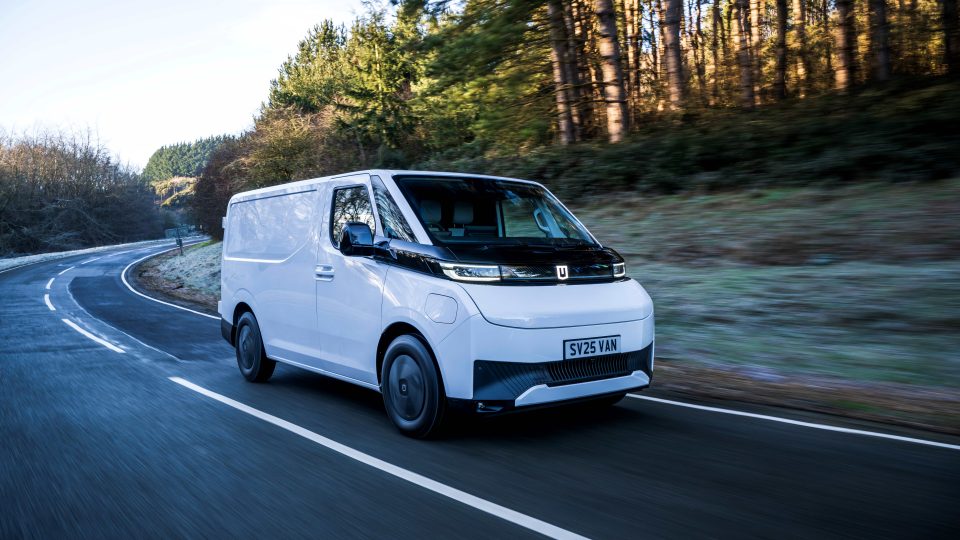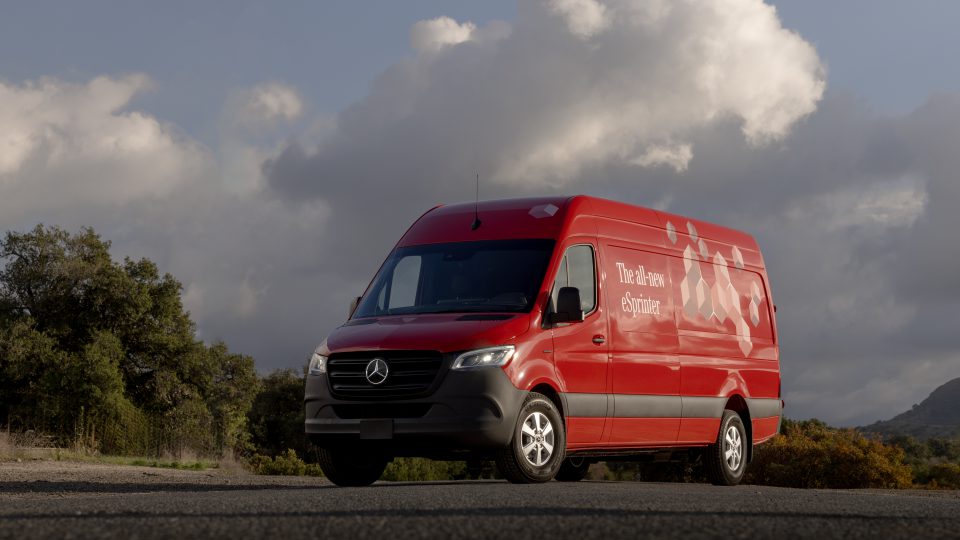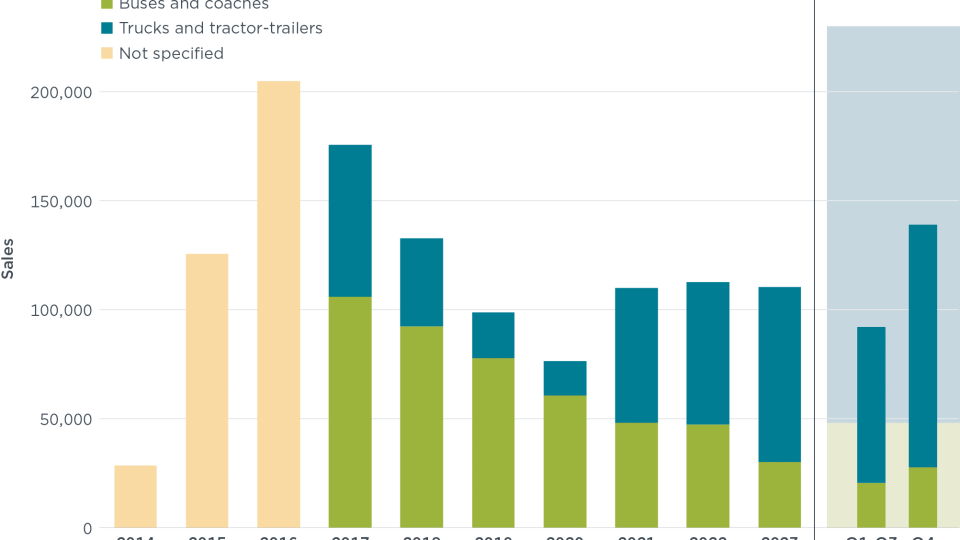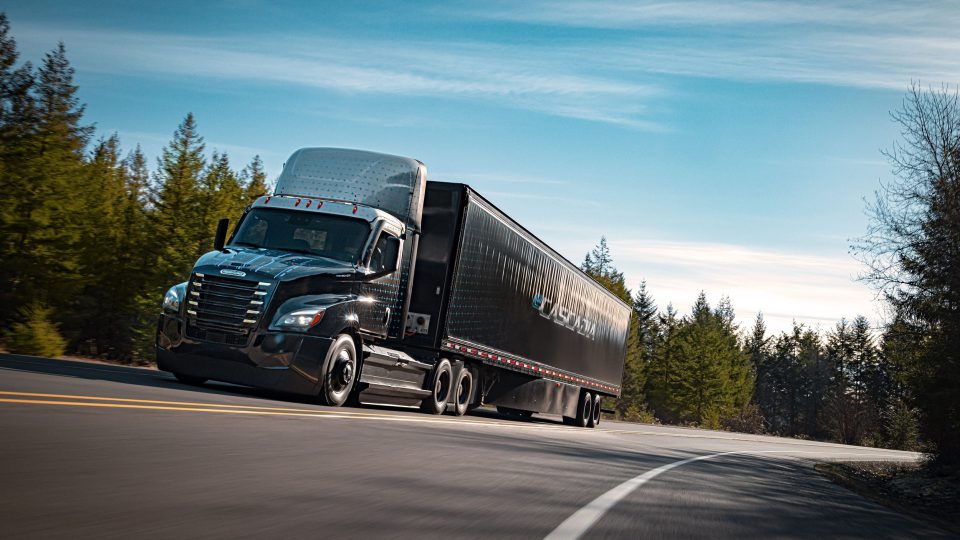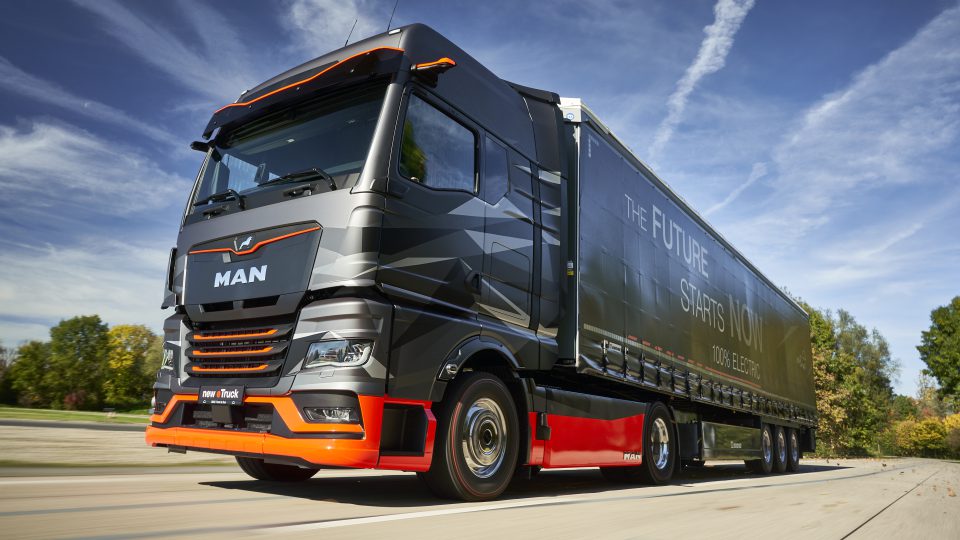«We believe in BEV trucks, but it’s time to focus on infrastructure». MAN Truck & Bus on electrification
CEO Andreas Tostmann faced the issue in response to the feasibility study 'Delivery traffic with battery trucks: Feasibility 2021' on the electrification of regional delivery traffic, which is based on real company data. Talking about concrete projects related to electrification, MAN Truck & Bus signed a framework agreement with TIER Mobility, a provider of sustainable micromobility for the delivery of up to 130 MAN eTGE electric vans.
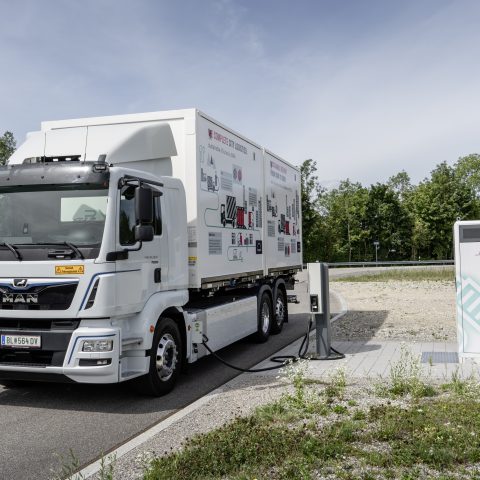
MAN Truck & Bus truly believes in the potential of BEV trucks, as proven by some of the latest news regarding the global manufacturer. However, as declared by MAN CEO Andreas Tostmann, «the development of charging infrastructure must now have top priority». Andreas Tostmann faced the issue in response to the feasibility study ‘Delivery traffic with battery trucks: Feasibility 2021’ on the electrification of regional delivery traffic, which is based on real company data. Fraunhofer ISI conducted the study, commissioned by Transport & Environment, which shows that the electrification of road freight transport is already possible in the short term and promises economic benefits for companies. The economic and technical feasibility was examined using the practical example of REWE Group logistics in the entire north-east region of Germany. The result: almost 60 per cent of the REWE fleet in the North-East region can already be electrified. For around 40 per cent, the switch to e-trucks is associated with economic advantages.
MAN: «BEV trucks often bring economic advantages»
As reported in the study, after evaluating all 9,500 truck tours to more than 540 logistics points, it is clear: the currently available ranges of battery trucks are often already sufficient today to manage all the urban truck tours analysed in the study and almost half of the regional tours considered with e-trucks. With optimised route planning and additional intermediate charging, the potential is even greater. For heavy trucks over 26 tonnes with very long daily journeys, however, electrification still remains a challenge given the current supply of vehicles. «From my point of view, an important conclusion of the study for our customers is that fleet operators can promptly electrify the technically feasible routes and that, in addition, the switch from diesel to BEVs already brings them economic advantages in many cases today», added Michael Treier, Sales Truck Alternative Drives at MAN Truck & Bus, who was involved in the study.
MAN joining the Science Based Targets initiative
At the end of September, MAN had joined the Science Based Targets initiative (SBTi), a partnership between the CDP (Carbon Disclosure Project), the United Nations Global Compact, the World Resources Institute (WRI), and the World Wide Fund for Nature (WWF). The initiative helps companies set science-based targets that are in line with the Paris Climate Agreement, which was adopted by the United Nations in 2015. According to this agreement, global warming should be limited to well below 2°C compared to pre-industrial levels – preferably even to 1.5°C.
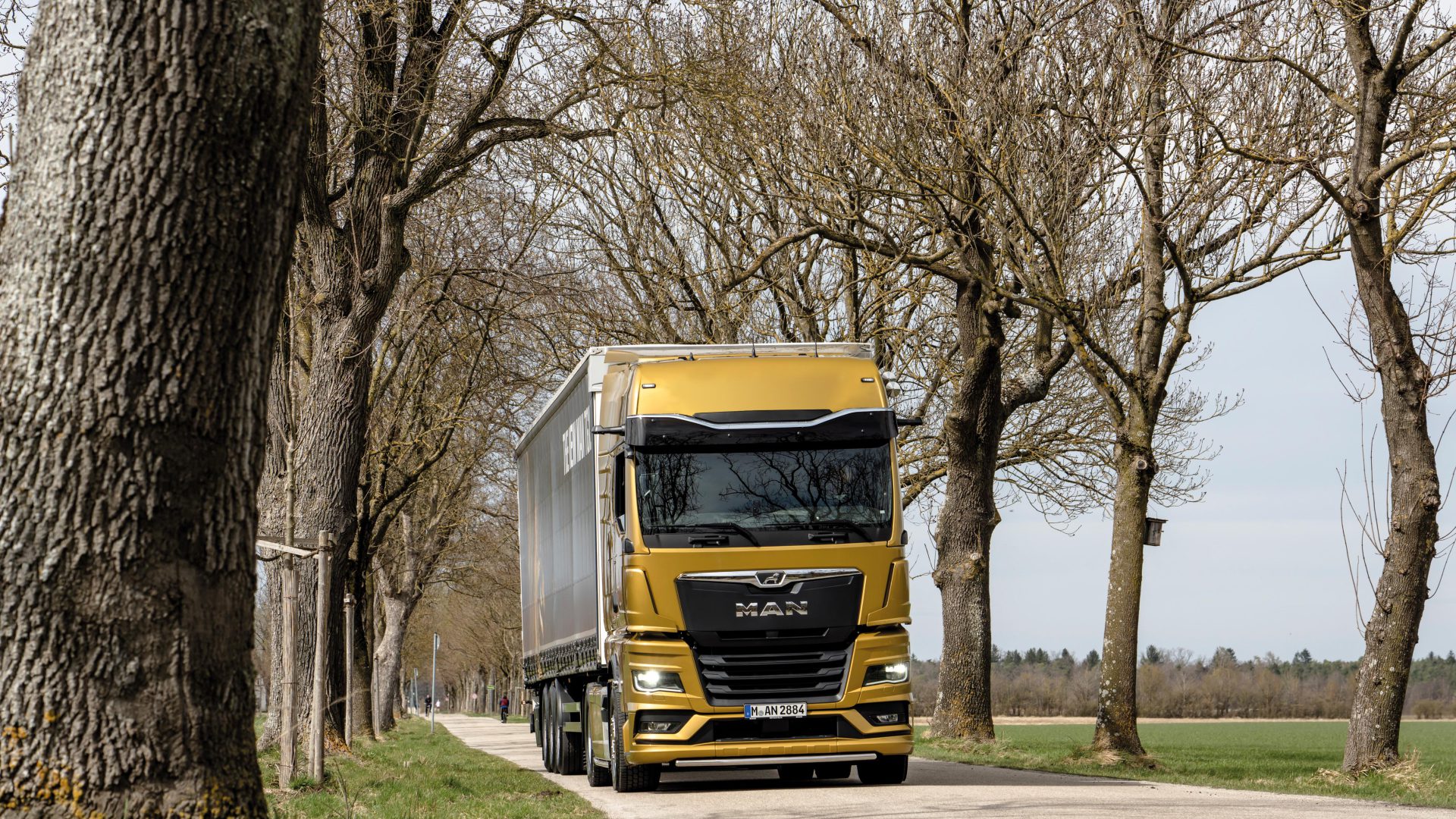
«We need to act now in view of the global climate crisis», explained at that time Andreas Tostmann. «MAN has achieved a great deal in the past and is now taking binding steps to further reduce greenhouse gas emissions generated in the use of our vehicles, in their production, and in the supply chain. Joining SBTi is an important step in defining concrete interim targets for our path to greenhouse gas neutrality».
MAN eTGE electric vans for TIER Mobility in Europe
Talking about concrete projects related to electrification, MAN Truck & Bus signed a framework agreement with TIER Mobility, a provider of sustainable micromobility for the delivery of up to 130 MAN eTGE electric vans to numerous European countries. The framework agreement applies to 13 countries in Europe where TIER is active, such as Germany, France, Great Britain, Poland, Austria, Norway, Sweden and the Netherlands. An extension to other countries is possible. The first vehicles are already in use in Great Britain and Germany.
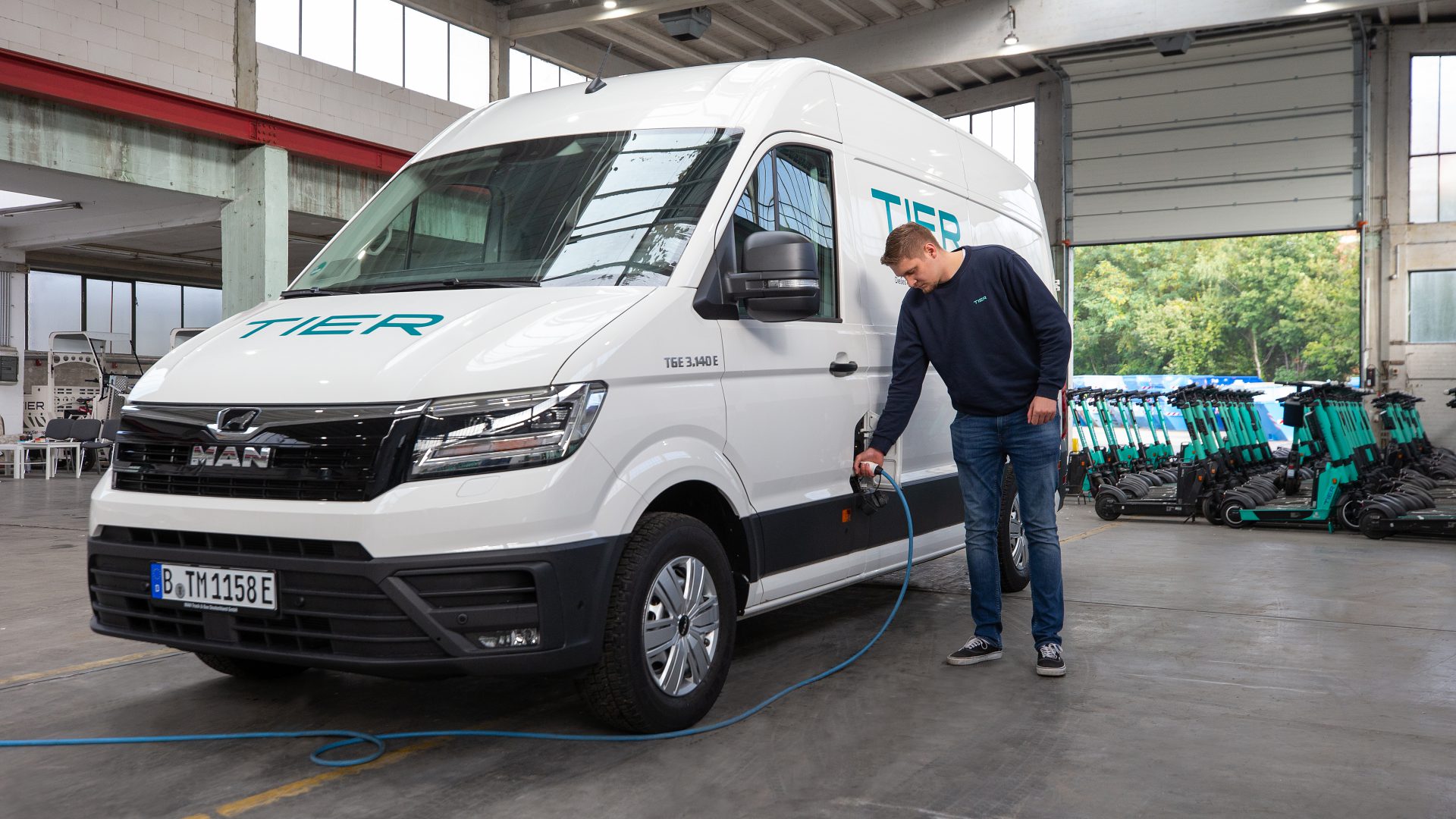
The BEV transporters are primarily used at TIER Mobility for changing the batteries in the electric scooters. The fully charged batteries are charged in the TIER depot and exchanged on site with the help of the eTGE. In some cities, TIER also operates decentralised charging and exchange stations to minimise the distances within the city. In addition, the MAN e-transporters are also used to transport the e-scooters when they need to be serviced or repaired.





